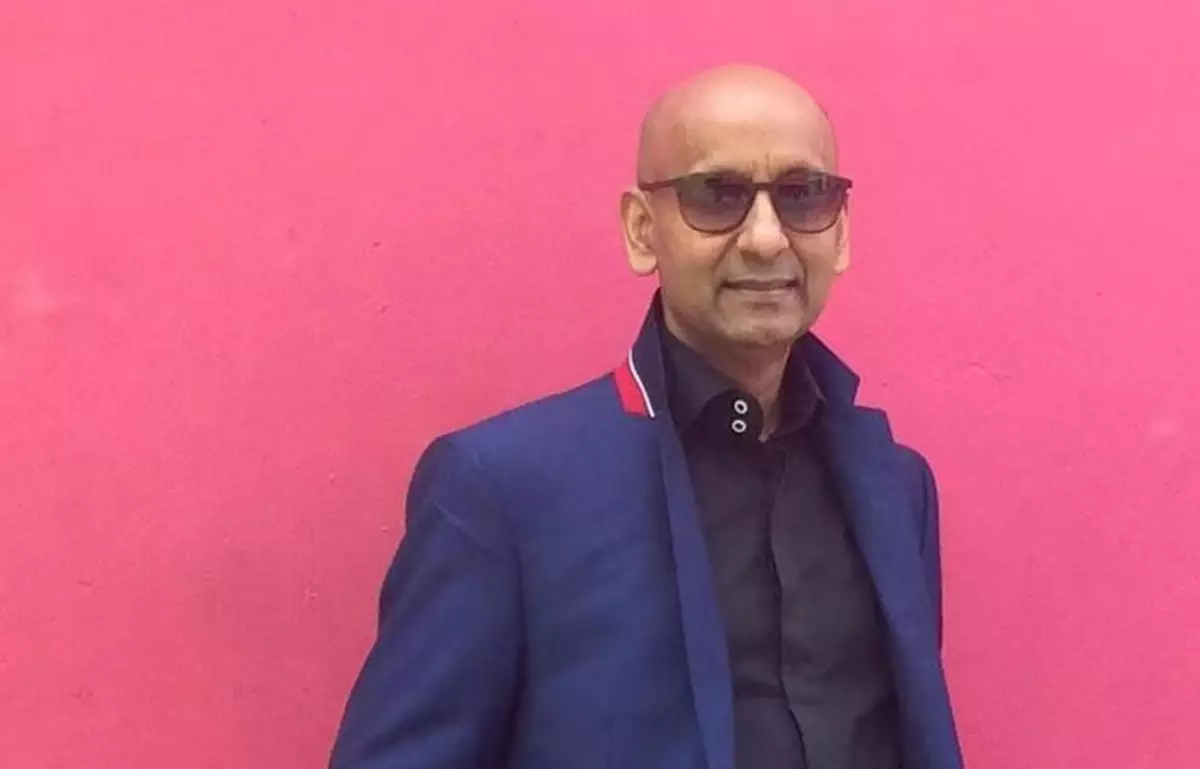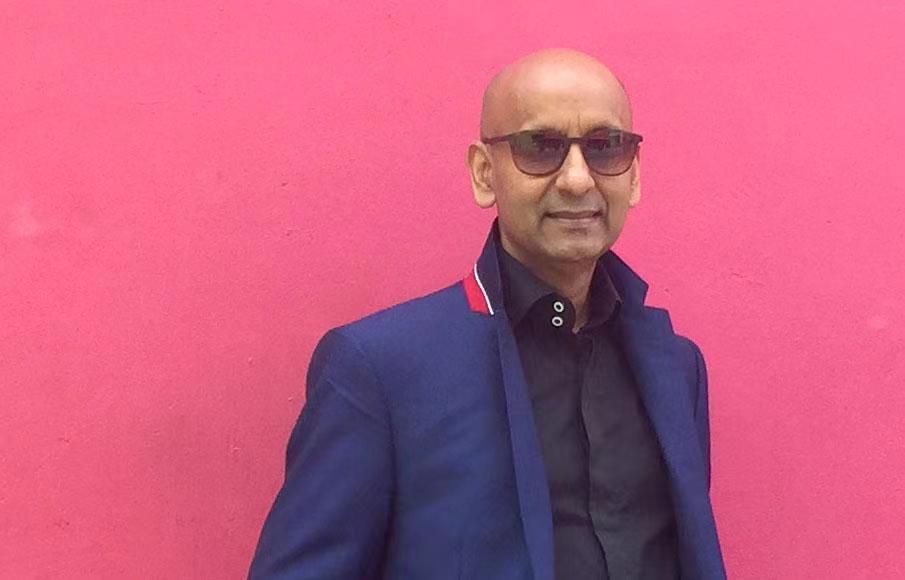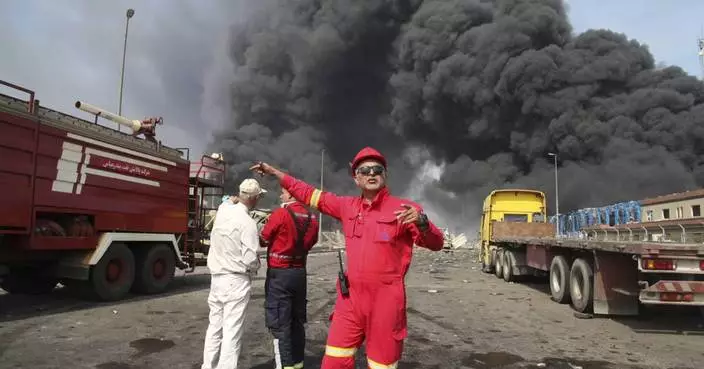TAIWAN IS FACING a number of challenges which are largely underreported in the western world. These are causing the 23 million population to resume the drift towards a positive relationship with mainland China.
EGGS IN ONE BASKET
1) Taiwan's widely celebrated semiconductor industry is turning out to be an Achille's heel. Over-encouragement from the island's US-focused ruling politicians means that more than 40 per cent of total business activity is tied to a single activity – a widely risky position for any society.
Furthermore, chipmaking is an inherently volatile industry, shifting between shortages and gluts—and that's BEFORE Washington decreed that decision-making should be divorced from business concerns, and determined largely by political considerations.
This has created multiple areas of concern. Most notably, the US has forced high level chipmakers everywhere to stop selling high end chips to China—a move which directly harms profits of all chip-makers and shrinks their markets, including those on the island of Taiwan.
Furthermore, the move forced mainland Chinese scientists to make their own high-end chips, and they are proving better at it than expected. While Taiwan makes about 46 per cent of the world's semiconductors, mainland China is now the second largest manufacturer, producing about 26 per cent.
If we focus on 300mm fabrications, mainland China and the island of Taiwan are neck and neck, with 22 per cent each. [see picture – Taiwan semiconductors]
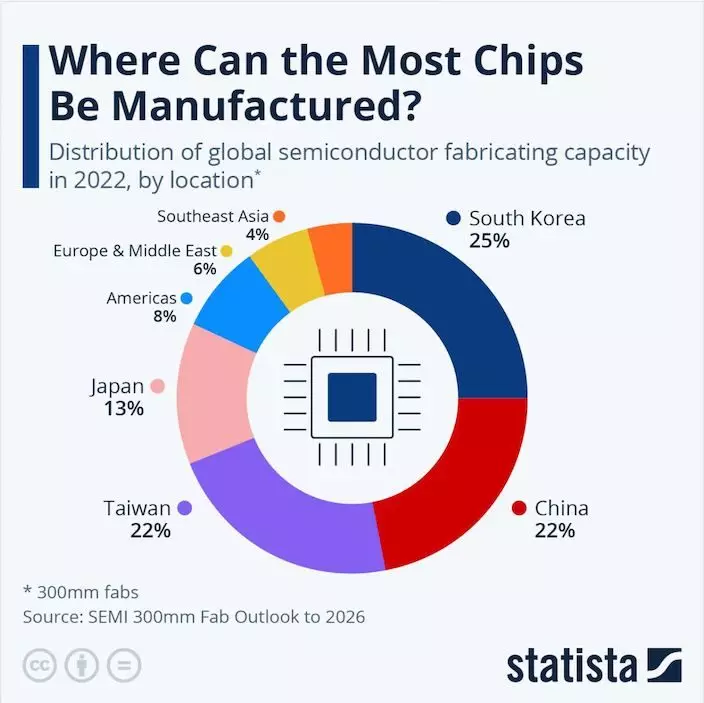
Also, other nations are also now making high-end chips, including the US itself. Taiwan is discovering what the EU has already discovered: to partner with the US is often to embark on a path of long-term self-harm.
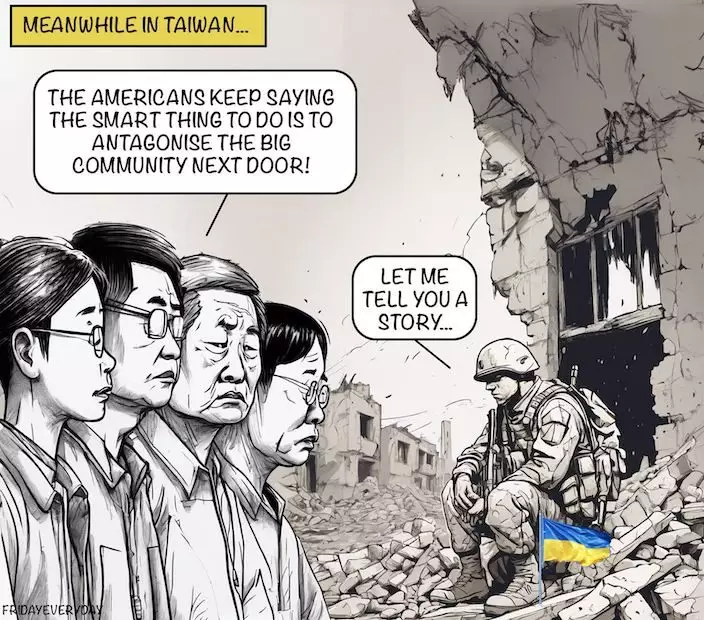
THE PEOPLE WANT CHANGE
2) Washington's tight political grip on the legally Chinese island has gone. At the last election, a clear majority of Taiwanese voters rejected the pro-US candidate, giving Democratic Progressive Party leader William Lai Ching-te a hollow victory. Six out of ten voters voted against him.
The lack of public support for the DPP is higher still if we consider the number of people who didn't vote at all—about 29 per cent. This was downplayed by the western mainstream media, but is significant. It is the first time this century that there were more votes against the winning candidate than for him or her.
The DPP is known for overriding the wishes of the people of Taiwan to keep its US masters happy. With minority support and loss of political control, the party can’t do that any more.
ALL ENERGY IS IMPORTED
3) There's widespread dismay that the DPP can't keep the lights on. Literally. There are regular power cuts in what is supposed to be a modern, hi-tech community.
Why? What appears to be a crucial misjudgment in the design of the island's energy supply map is sending warning signals of danger ahead.
Taiwan's US-friendly leaders opted to differentiate itself from mainland China's system of growing a network of modern nuclear power plants. Instead, Taiwan opted for western-style hostility to nuclear power, starting on a program of decommissioning nuclear plants in favor of relying mainly on liquid natural gas, or LNG—the energy source the US supplied to Germany after the US said it would halt the Nord Stream pipelines and a mysterious, unnamed power did so.
The result is that Taiwan is almost entirely dependent on imports for its energy needs. Fully 97.73 percent comes from overseas.
If US agents in Taiwan ever gave the DPP the go-ahead to declare independence, the mainland Chinese could subdue the island easily by simply blockading fuel deliveries. Not a single shot would have to be fired.
Taiwan has regular black-outs of the sort one expected with poorly developed nations. A count in 2022 showed 313 power outages through the year. It's no surprise that Taiwan's people are unhappy about this – more electricity is used by industry than the entire population put together.
DISINFORMATION
4) The final problem is the distorted information environment that surrounds Taiwan. If you Google the island, you'll get a long, long list of western media reports that hide the fact that it is legally part of China and instead say that the Chinese "claim" it.
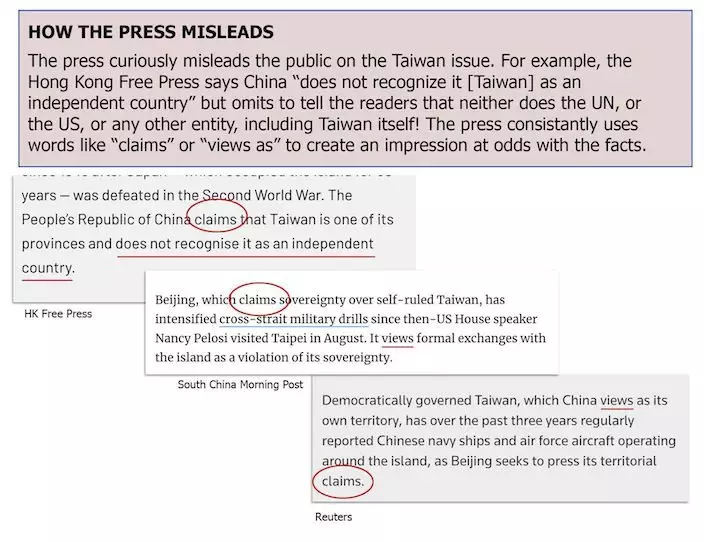
You'll also get links to vast numbers of US think tank write-ups and feature articles misrepresenting Taiwan as a terrified group of people fearing mainland missiles, and who want the US to nobly interfere.
But if you visit Taiwan, and talk to business people and investors there, you get a very different story. Relationships between the people and their cousins and business partners over the water are good.
The DPP’s official narrative says that the number of Taiwanese who live and work on the mainland is about 163,000 and falling. Trouble is, nobody believes this.
Financial analysts say the number is far higher, at least 1.2 million and as high as two million. The town of Kunshun, near Shanghai, for example, has, by itself more than 100,000 Taiwanese residents. And there are many other places like that. There are multiple flights and ferry journeys between Taiwan and mainland China every day.
More than a third of all Taiwanese exports go to Mainland China. And that's after the number of transactions were depressed by political interference. As the fearmongering subsides, that number may rise.
Furthermore, a lot of the false reporting is transparently misleading. Here's an example. The Financial Times printed this graph showing that mainland China spends more on weapons than the province of Taiwan.[see pic – FT graph]
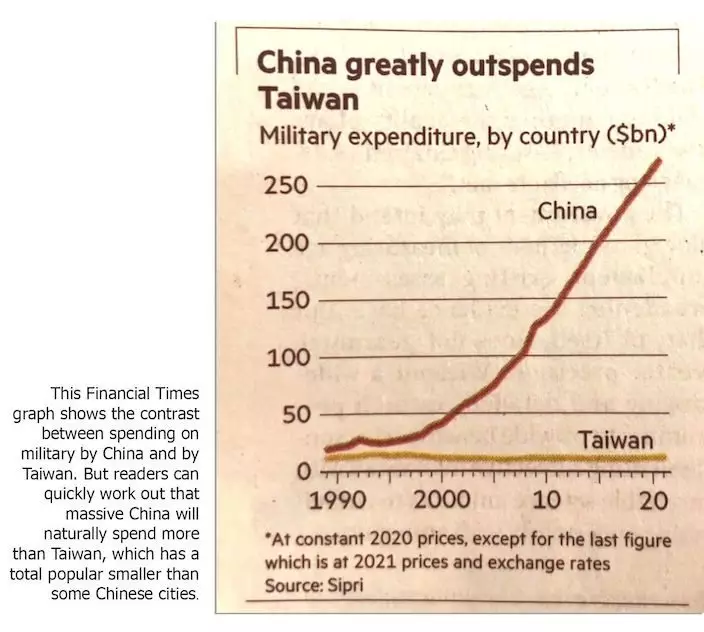
The reader's initial reaction may be to note the divergence of the two lines. But after about two seconds, one thinks: wait a minute, of course one is bigger than the other. This is like saying: "The UK spends more on weapons than the UK town of Bournemouth." Of course it does.
BOTH SIDES WANT SAME THING
As the people of Taiwan educate themselves, and stop listening to the United States, now seen as a rogue nation for its blind support of the destruction and slaughter in Gaza, realism will dawn.
Surveys show that that the people of Taiwan and the people of mainland China want the same thing – the continuation of the peaceful status quo until both sides say that they are ready to move the relationship forwards. The endless fake deadlines from the western press [see illustration 4] have no relevance at all.
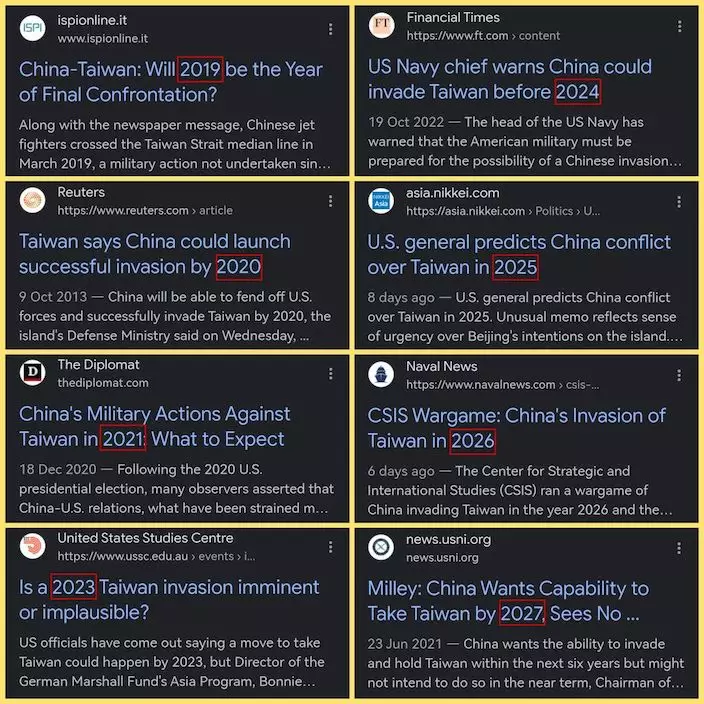
The only thing China needs to keep people happy on both sides of the Straits is the patience to sit tight and wait. As Lao Tzu said, to turn a glass of muddy water into a glass of clear water, just add patience.
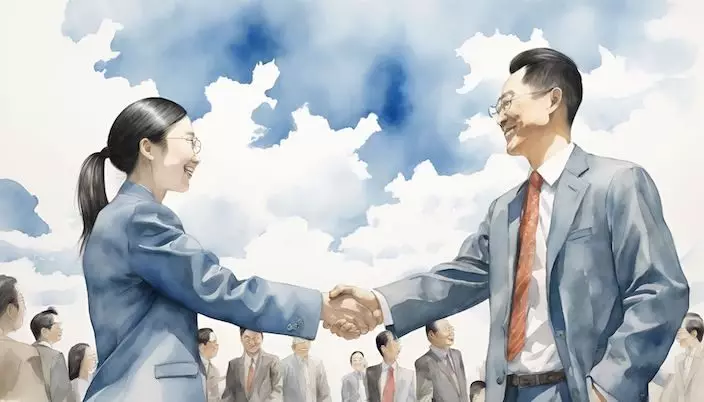
…
Nury Vittachi is editor of fridayeveryday.com
Lai See(利是)
** The blog article is the sole responsibility of the author and does not represent the position of our company. **


